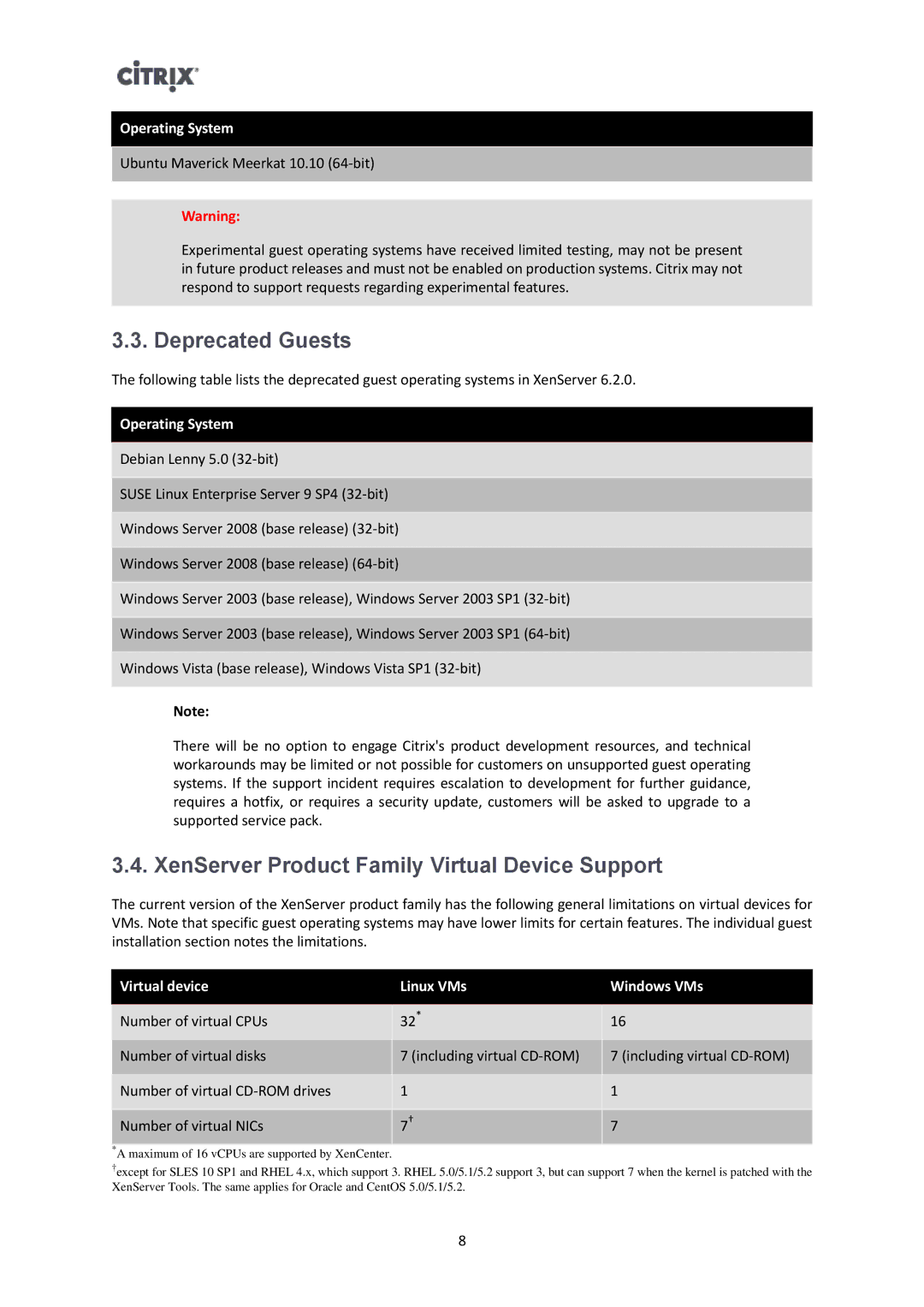
Operating System
Ubuntu Maverick Meerkat 10.10
Warning:
Experimental guest operating systems have received limited testing, may not be present in future product releases and must not be enabled on production systems. Citrix may not respond to support requests regarding experimental features.
3.3. Deprecated Guests
The following table lists the deprecated guest operating systems in XenServer 6.2.0.
Operating System
Debian Lenny 5.0
SUSE Linux Enterprise Server 9 SP4
Windows Server 2008 (base release)
Windows Server 2008 (base release)
Windows Server 2003 (base release), Windows Server 2003 SP1
Windows Server 2003 (base release), Windows Server 2003 SP1
Windows Vista (base release), Windows Vista SP1
Note:
There will be no option to engage Citrix's product development resources, and technical workarounds may be limited or not possible for customers on unsupported guest operating systems. If the support incident requires escalation to development for further guidance, requires a hotfix, or requires a security update, customers will be asked to upgrade to a supported service pack.
3.4. XenServer Product Family Virtual Device Support
The current version of the XenServer product family has the following general limitations on virtual devices for VMs. Note that specific guest operating systems may have lower limits for certain features. The individual guest installation section notes the limitations.
Virtual device | Linux VMs | Windows VMs |
|
|
|
Number of virtual CPUs | 32* | 16 |
Number of virtual disks | 7 (including virtual | 7 (including virtual |
|
|
|
Number of virtual | 1 | 1 |
|
|
|
Number of virtual NICs | 7† | 7 |
*A maximum of 16 vCPUs are supported by XenCenter.
†except for SLES 10 SP1 and RHEL 4.x, which support 3. RHEL 5.0/5.1/5.2 support 3, but can support 7 when the kernel is patched with the XenServer Tools. The same applies for Oracle and CentOS 5.0/5.1/5.2.
8
